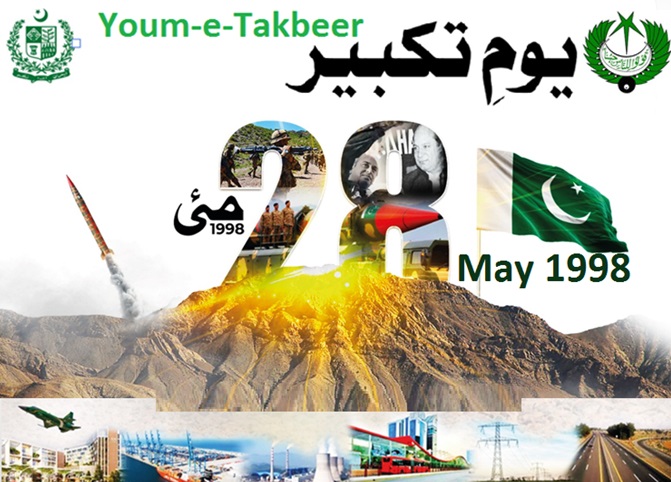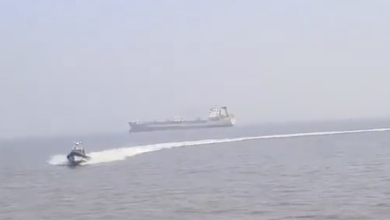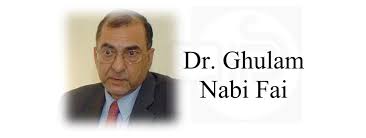Article: Youm-e-Takbeer: Nuclear Deterrence and Kashmir Conflict
 -Qirat Mirza
-Qirat Mirza
India’s involvement in the Fall of Dacca and exploding its first nuclear device prompted Pakistan to develop its  nuclear capability. As a result, Pakistan conducted its nuclear tests on May 28, 1998, and became a nuclear-armed country. The day is celebrated every year as Youm-e-Takbeer.” It was intended to restore the power equilibrium and establish nuclear deterrence. Nuclear deterrence refers to deterring aggression from rival countries due to the concerns of mass destruction and regional instability. Nuclear weapons are political weapons, not intended for warfighting. Instead, they are used to deter any sort of aggression from rivals. From 1998 to until now, South Asia has not witnessed any full-scale war. However, it can’t curb conventional confrontation between two rivals. It is evident from the Kargil crises, troops mobilization in 2000, and the Balakot operation in 2019. Nuclear deterrence is not ample for avoiding other forms of aggression and resolving conflicts with India. There is still a need for conventional weapons. Additionally, economic growth, political stability, diplomacy, and a nation’s faith in defense also play an imperative role. From 1999 to 2006, both countries engaged in talks to preserve strategic stability while avoiding nuclear dangers. However, strategic stability requires that there should be no armed conflict or unresolved issues leading to a war. In the case of India and Pakistan, Kashmir has been a bone of contention for years. Despite efforts to resume bilateral relations between both countries, there has always been a deadlock on Kashmir.
nuclear capability. As a result, Pakistan conducted its nuclear tests on May 28, 1998, and became a nuclear-armed country. The day is celebrated every year as Youm-e-Takbeer.” It was intended to restore the power equilibrium and establish nuclear deterrence. Nuclear deterrence refers to deterring aggression from rival countries due to the concerns of mass destruction and regional instability. Nuclear weapons are political weapons, not intended for warfighting. Instead, they are used to deter any sort of aggression from rivals. From 1998 to until now, South Asia has not witnessed any full-scale war. However, it can’t curb conventional confrontation between two rivals. It is evident from the Kargil crises, troops mobilization in 2000, and the Balakot operation in 2019. Nuclear deterrence is not ample for avoiding other forms of aggression and resolving conflicts with India. There is still a need for conventional weapons. Additionally, economic growth, political stability, diplomacy, and a nation’s faith in defense also play an imperative role. From 1999 to 2006, both countries engaged in talks to preserve strategic stability while avoiding nuclear dangers. However, strategic stability requires that there should be no armed conflict or unresolved issues leading to a war. In the case of India and Pakistan, Kashmir has been a bone of contention for years. Despite efforts to resume bilateral relations between both countries, there has always been a deadlock on Kashmir.
While India emphasizes not bringing Kashmir as a condition to resume bilateral talks, Pakistan can’t stop talking about Kashmir. The Founder of Pakistan, Quid e Azam Muhammad Ali Jinnah declared Kashmir as the jugular vein of Pakistan. This doesn’t stop here. various organizations and people around the globe are advocating for the rights and concerns of the Kashmiri people. Until now, India and Pakistan have fought three wars over Kashmir. When India revoked Article 370 to make Kashmir its integral part, Pakistan ended all diplomatic ties with India. The future of India-Pakistan relations depends on progress over the Kashmir issue. Additionally, who can say it can’t balloon conventional confrontation over Kashmir into a full-fledged nuclear war?
Furthermore, analysts believe that the risk of nuclear war has become more apparent since 1998 as Pakistan acquired its nuclear weapons in the same year. For instance, in 2020 one year after the abrogation of Article 370, India’s Defense minister raised questions about India’s adherence to its “No First Use Policy”. While adding to his prior statement, he said ‘we are thinking of reconsidering this policy”. This is exacerbated more by the fact that Pakistan doesn’t have a “NO First Use Policy”. However, Pakistan exercises minimum nuclear deterrence. That same year, the DG ISPR, the spokesperson of Pakistan’s armed forces recounted that “We will fight till the last soldier for Kashmir”.
According to the Arms Control and Non-Proliferation Centre, India has approximately 164 nuclear warheads and has land-based, sea-based, and air-launch nuclear capabilities. India has always defended its conventional military buildup by declaring it a response to the combined military buildup by Pakistan and China. Pakistan has approximately 170 warheads. If the current growth trend continues, Pakistan’s arsenal could grow to 220 to 250 warheads by 2025. Even a small nuclear exchange between India and Pakistan could kill 20 million people in a week. If a nuclear winter is triggered, nearly 2 billion people in the developing world would be at risk of death by starvation.
Once a Western diplomat said that India and Pakistan have enough nuclear bombs to blow [up] each other many times over. It’s going to be a very dangerous situation if there is ever a major war between these two countries.” Furthermore, for many years, Pakistan and India were known for keeping their warheads away from their missiles. However, research conducted by the Stockholm Institute issued admonitions that technological breakthroughs have exacerbated the risk of nuclear tensions between both countries. For instance, both countries are working to acquire nuclear submarine capability. Doing it would make it unfeasible for both countries to keep missiles away from warheads. In the last few years, both countries have demonstrated their capabilities to launch nuclear weapons from sea, thus completing the “triad”: the ability to launch nuclear weapons from land, air, and sea. India has the edge, with nuclear-powered submarines that can remain submerged for extended periods. Although Pakistan’s submarines are conventionally powered, with air-independent propulsion systems that let them stay underwater longer than before.
This would eventually put the security and stability of South Asia at stake. To avoid minor conventional confrontations from ballooning into a nuclear war, the International Community must pay heed to human rights violations in Indian Occupied Kashmir. Additionally, the rights of self-determination propped up by International Law should be respected and granted to the people of Kashmir. Before Kashmir, like Palestine, becomes a powder keg for relentless genocide, practical measures need to be taken. It is apparent from the issuance of 60,000 fake domiciles to Indians since 2020, promoting illegal settlements on the territory. Furthermore, on one occasion in 2019, the Indian plan of genocide was revealed with the slip of the tongue of an Indian diplomat when he said India would adopt Israel’s model to ethnically cleanse Muslims and resettle the Hindu population in Kashmir. Moreover, the matter of concern is that Kashmir is a nuclear flashpoint between nuclear powers, further exacerbating the situation. This will impinge on the region’s security and stability along with having ramifications for global food security.
The writer is a student of International Relations at the International Islamic University, Islamabad, and is currently serving as an intern at the Kashmir Institute of International Relations.








